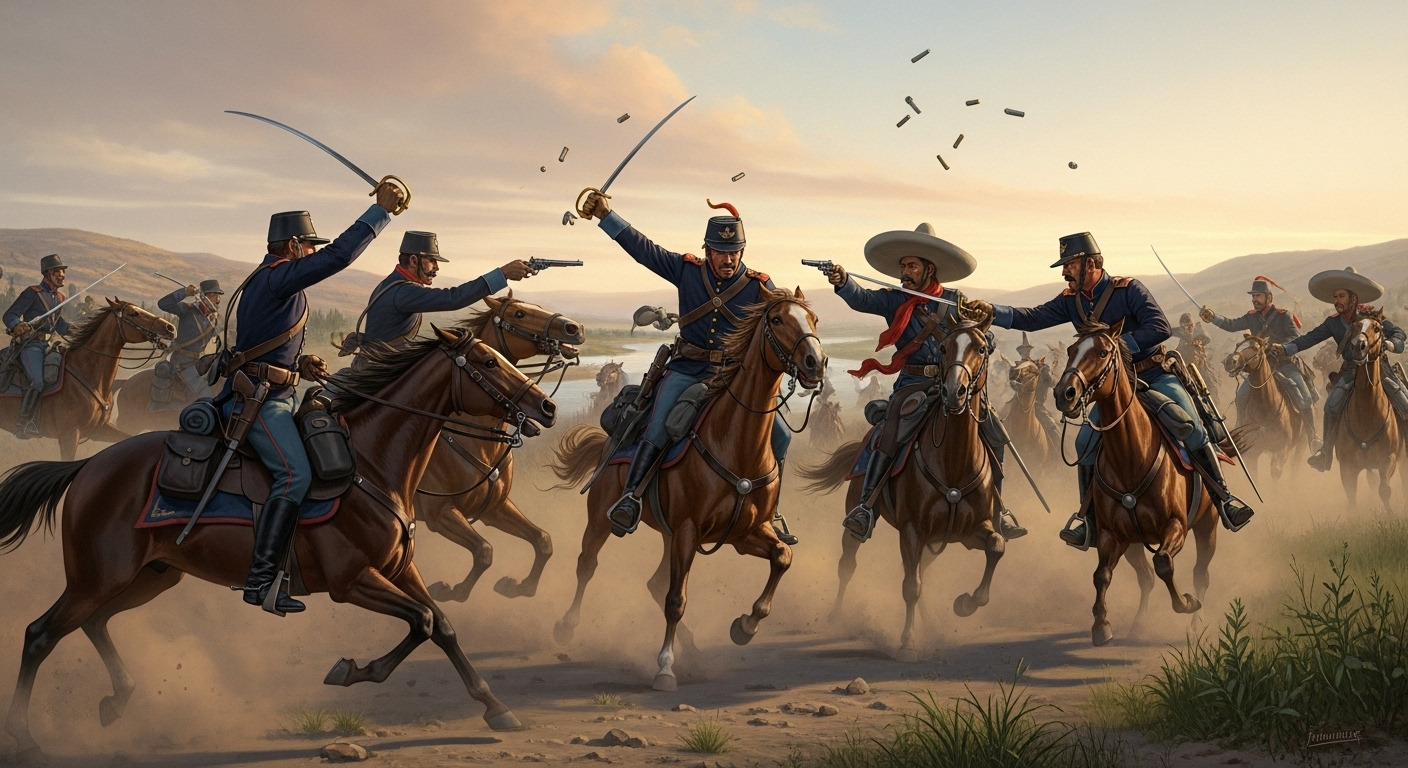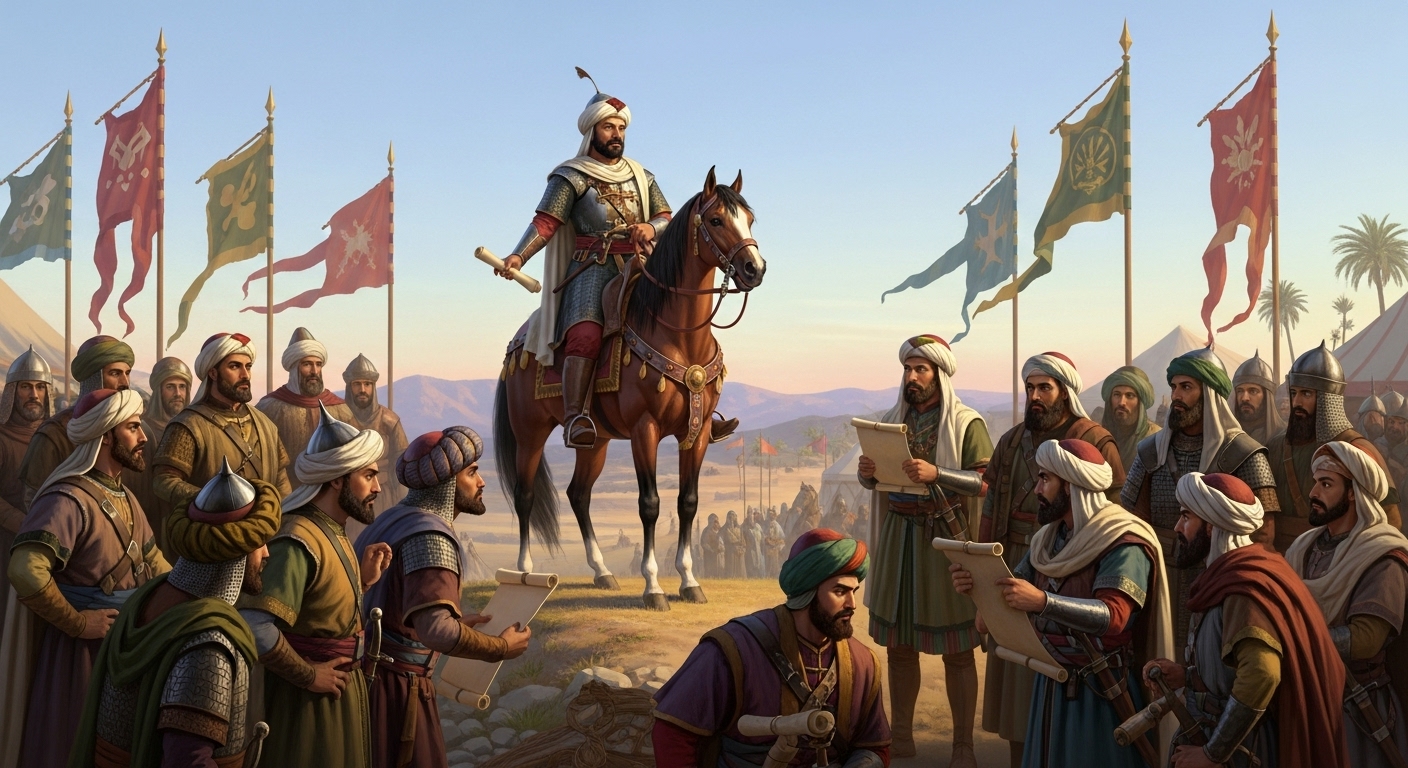The early 20th century Balkans were a true tinderbox, often dubbed the “powder keg of Europe,” simmering with ethnic tensions and geopolitical rivalries. As the once-mighty Ottoman Empire continued its slow, agonizing decline, a vacuum of power emerged, inviting ambitious new players onto the stage. The causes of the First Balkan War are not simple; they form a complex tapestry woven from deep-seated historical grievances, fervent nationalist ambitions, the opportunistic actions of regional powers, and the overarching weakness of the Ottomans. This conflict, which erupted in October 1912, was a watershed moment, reshaping the map of Southeast Europe and setting the stage for even greater global turmoil. In this article, we’ll delve into the multifaceted factors that led to this pivotal conflict, exploring the Ottoman collapse, the rise of Balkan nationalism, and the catalytic events that ultimately ignited the flames of war.
I. The “Sick Man of Europe”: Ottoman Decline
For centuries, the Ottoman Empire had been a dominant force, but by the dawn of the 20th century, it was widely referred to as the “Sick Man of Europe.” Its long decline was marked by continuous territorial losses and a weakening grip on its vast, multi-ethnic provinces, particularly those in Europe. Areas like Macedonia, Thrace, and Albania were increasingly difficult to govern, becoming hotbeds of discontent. This internal decay is one of the fundamental causes of the First Balkan War[1].

Beyond territorial erosion, administrative incompetence and pervasive corruption plagued Ottoman rule. Christian populations, in particular, suffered from poor governance and occasional, brutal suppression of revolts. These heavy-handed tactics only deepened their desire for independence and reform, pushing them further towards rebellion. The empire’s inability to enact meaningful reforms or protect its non-Muslim subjects created a fertile ground for nationalist movements to flourish. Adding to the chaos, the 1908 Young Turk Revolution, while initially promising reform, led to further political instability within the empire. This internal turmoil diverted Ottoman resources and attention, making the empire even more vulnerable and emboldening its Balkan neighbors to contemplate military action.
II. Awakenings: The Surge of Balkan Nationalism
Inspired by the wave of nationalism sweeping across 19th-century Europe, the various ethnic groups within the Ottoman Balkans – Serbs, Bulgarians, Greeks, and Montenegrins – began to vigorously pursue their own independent nation-states. This powerful surge of self-determination was another critical element among the causes of the First Balkan War. But nationalism wasn’t just about independence; it also fueled aggressive visions of territorial expansion, setting the stage for future conflicts.
- Greater Serbia: Serbia aimed to unite all South Slavs under its rule, a vision that inevitably clashed with the interests of the Austro-Hungarian Empire, which had its own Slavic populations.
- Greater Bulgaria: Bulgaria sought to reclaim territories it considered historically Bulgarian, especially in Macedonia and Thrace, based on demographic and historical claims.
- Megali Idea (Greater Greece): Greece dreamed of incorporating all historically Greek-speaking lands, including parts of Macedonia, the Aegean islands, and the coastal areas of Asia Minor, echoing ancient Hellenic glories.
- Montenegro’s Ambitions: Tiny Montenegro, though smaller, also harbored significant territorial desires, particularly along the Adriatic coast and into Ottoman Albania.

At the heart of these competing claims lay the Macedonian Question. Macedonia was a complex, multi-ethnic mosaic of Slavs (some identifying as Bulgarian, others as Serbian), Greeks, Albanians, and Turks[2]. This demographic patchwork meant that Serbia, Bulgaria, and Greece all laid claim to significant portions of the region, each citing historical, linguistic, or ecclesiastical ties. The constant unrest, brigandage, and atrocities committed by various armed groups – often supported by neighboring states – provided a continuous pretext for intervention and fueled a climate of instability that practically begged for war.
III. Catalysts and Triggers: Events Leading to War
While deep-seated issues brewed for decades, certain events acted as immediate catalysts, pushing the region towards war. One such critical trigger was the Italo-Turkish War (1911-1912). Italy’s audacious invasion of Ottoman Libya (Tripolitania and Cyrenaica) revealed, unequivocally, the profound weakness of the Ottoman military. The Ottoman Empire, already stretched thin, was forced to divert significant resources to defend its North African possessions, leaving its European provinces even more vulnerable. This war sent a clear signal to the Balkan states: the time was ripe for action. The ‘Sick Man’ was not just sick; he was openly exposed and bleeding[3].

Further destabilizing the region were the persistent Albanian Revolts (1910-1912). Albanians, a distinct ethnic group within the Ottoman Empire, sought greater autonomy or outright independence. These series of uprisings, driven by a desire for self-determination and resentment of Ottoman policies, further weakened imperial control in the western Balkans. The revolts created a significant power vacuum that the neighboring Balkan states were more than eager to fill, seeing it as another opportunity to expand their territories and advance their nationalist agendas. These events, combined, significantly contributed to the immediate causes of the First Balkan War.
IV. United Front, Divided Intentions: The Formation of the Balkan League
Against this backdrop of Ottoman decline and burgeoning nationalism, the Balkan states decided that strength lay in unity. In early 1912, a secret military alliance known as the Balkan League was formed, comprising Serbia, Bulgaria, Greece, and Montenegro. This strategic alliance was a direct response to the perceived opportunity to finally expel the Ottomans from Europe and divide their remaining territories. While the member states presented a united front against their common foe, it’s crucial to note that their individual territorial ambitions were already fiercely clashing, particularly over the future of Macedonia. This underlying tension would soon become a source of great strife.

The primary motivation for the League was a shared, fervent anti-Ottoman sentiment. They believed the time was opportune to finish the job of liberating their co-ethnics and incorporating desired lands. Russia, driven by its own geopolitical interests to expand its influence in the Balkans and weaken Austro-Hungarian dominance, played a significant diplomatic role in encouraging the formation of the League. However, Russia perhaps underestimated the aggressive potential of the alliance, assuming it would act more as a defensive bloc rather than an offensive force geared towards immediate war.
V. The Shadowy Hand: Great Power Apathy and Rivalry
No discussion of the causes of the First Balkan War would be complete without acknowledging the complex and often contradictory role of the great European powers: Austria-Hungary, Russia, Germany, Britain, and France. Each had its own intricate web of geopolitical and economic interests in the Balkans, which frequently conflicted. Austria-Hungary, for example, was deeply concerned about Serbian expansionism, fearing it would ignite irredentist movements among its own South Slav subjects. Russia, on the other hand, saw itself as the protector of Orthodox Slavs and aimed to increase its influence. This made effective, coordinated diplomacy incredibly difficult[4].
Their inability to agree on a common, decisive policy regarding the future of Macedonia or the crumbling Ottoman Empire ultimately contributed to the escalating crisis. Rather than imposing a stable solution or mediating the increasingly volatile situation, the great powers often engaged in hesitant posturing or pursued their own narrow agendas. This lack of decisive intervention, or perceived ‘green light,’ was interpreted by the ambitious Balkan states as a tacit approval, or at least a lack of serious opposition, to proceed with their plans. They believed they could act without fear of major repercussions from the larger European nations, an assumption that profoundly impacted the timing and nature of the conflict.
VI. Conclusion: A Precursor to Greater Conflict
The causes of the First Balkan War were undeniably a complex and interconnected web of factors. From the long, agonizing decline of the Ottoman Empire and its administrative failings to the fervent, often expansionist, nationalism gripping the newly independent Balkan states, every element played a crucial role. The unresolved Macedonian Question, acting as a constant flashpoint, combined with catalytic events like the Italo-Turkish War and Albanian revolts, created a volatile environment. The formation of the opportunistic Balkan League, united against the Ottomans but divided by their own ambitions, provided the military might, while the great powers’ conflicting interests and ineffective diplomacy paved the way for the conflict to erupt[5].

The immediate aftermath saw the swift victory of the Balkan League, with the Ottomans largely expelled from their remaining European territories, except for a small foothold in Thrace. However, this triumph was short-lived. The First Balkan War, despite its dramatic redrawing of maps, created new grievances and left many issues unresolved, particularly concerning the division of Macedonia. These lingering tensions directly contributed to the rapid outbreak of the Second Balkan War just months later, where the former allies turned on each other. Ultimately, the causes of the First Balkan War and its immediate consequences served as a crucial, harrowing prelude to the global catastrophe of World War I, demonstrating how regional conflicts, fueled by nationalism and imperial decline, could ignite a much larger conflagration.



